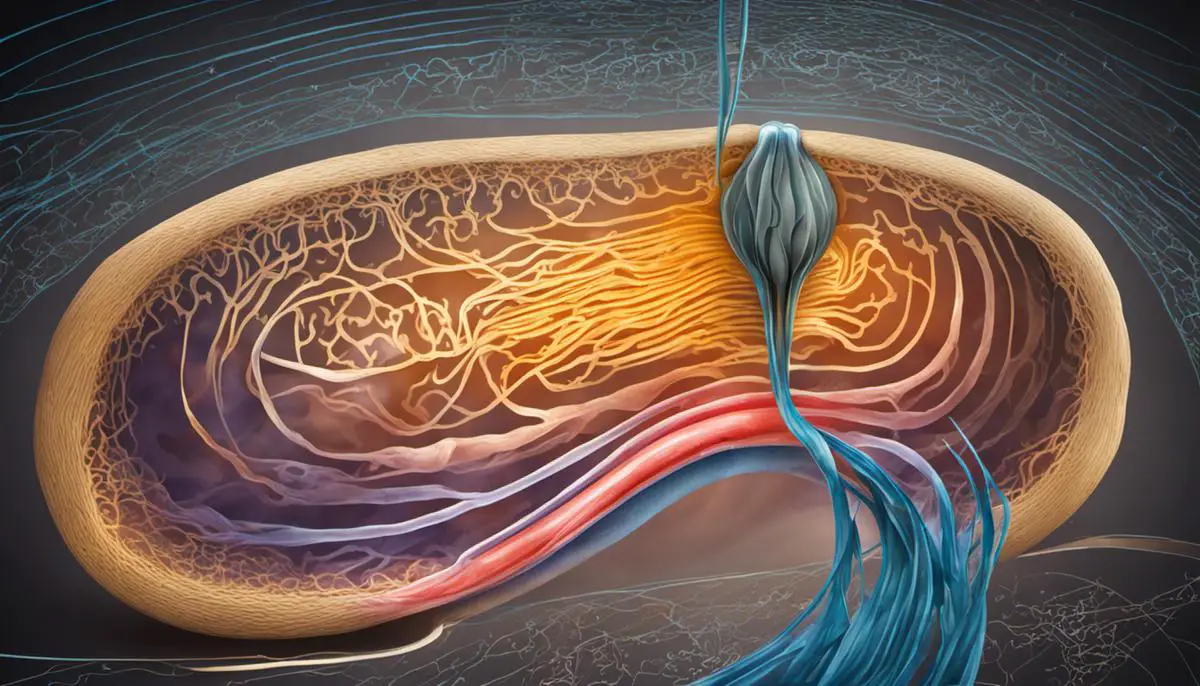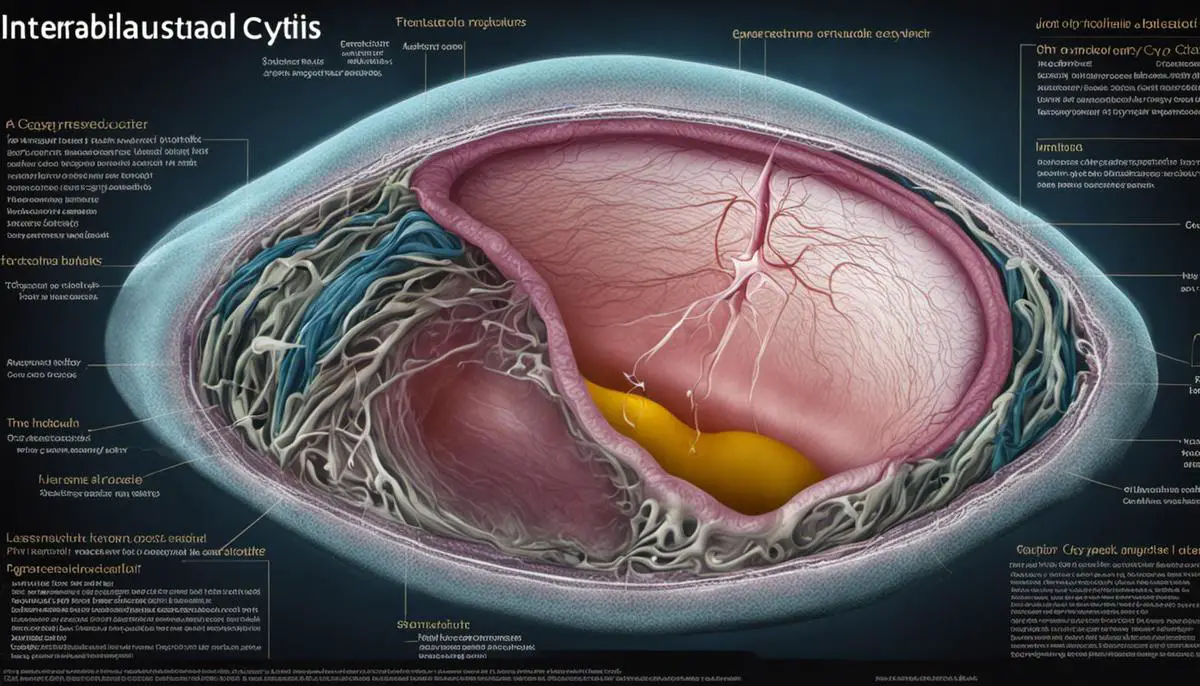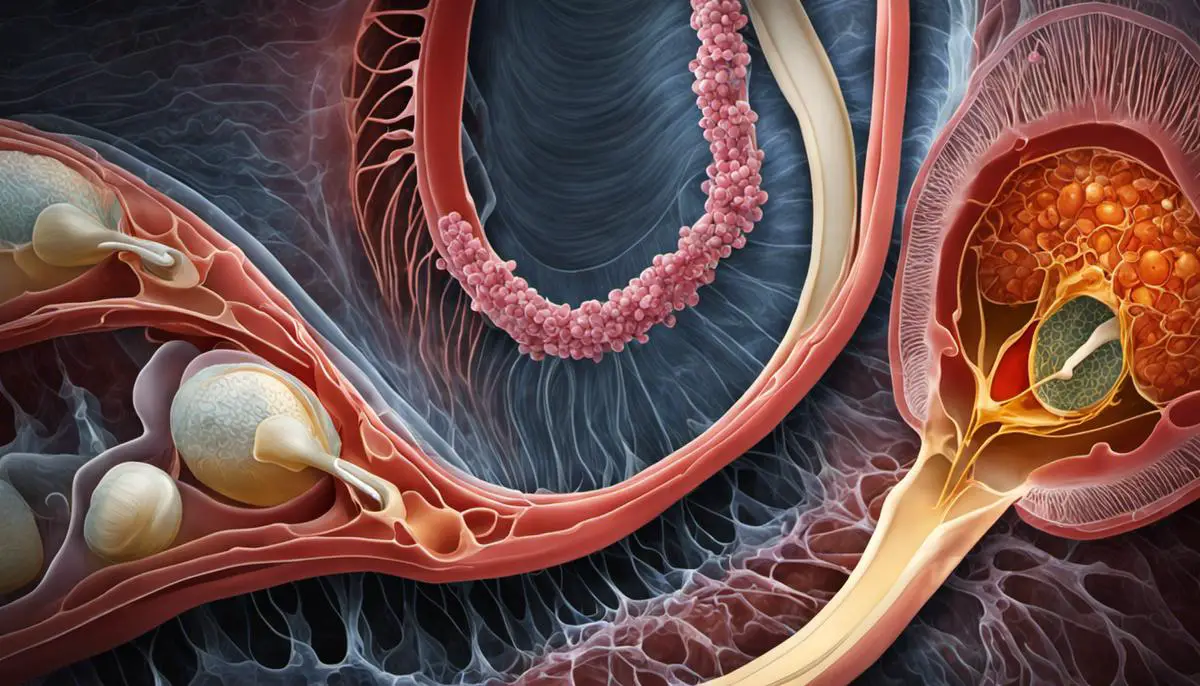Interstitial Cystitis is a complex medical condition that greatly impacts the lives of those affected. This, combined with the lack of one-size-fits-all conventional treatments, calls for a thorough understanding and exploration of new approaches in managing its debilitating symptoms. This paper discusses Interstitial Cystitis in detail to provide an objective understanding of its nature, implications, and standard treatment approaches. Moreover, it delves into the art and science of hypnotherapy as a potential alternative mode of treatment. Equipped with a clear understanding of these concepts, we then examine the possibility of employing hypnotherapy in treating Interstitial Cystitis, shedding light on its potential to improve patient outcomes and quality of life.
Understanding Interstitial Cystitis
Understanding Interstitial Cystitis
Interstitial Cystitis, also known as Painful Bladder Syndrome, is a chronic condition of the bladder that causes varying degrees of discomfort, ranging from mild irritation to severe pain. The lining of the bladder becomes inflamed and irritated, resulting in symptoms such as increased urinary frequency, discomfort or pain in the bladder area, and pelvic pain. The severity of symptoms can fluctuate, and some people may experience periods of remission.
The exact cause of Interstitial Cystitis is still unknown, yet research points to several potential factors such as an abnormality in the bladder wall, a type of autoimmune reaction, an infection or allergy. Diagnosing the condition can be complex since there is no definitive test available. Often, doctors rule out other possible conditions before confirming Interstitial Cystitis.
Traditional treatment options available include oral medications, physical therapy, nerve stimulation, bladder instillations, and surgery, yet the effectiveness of these treatments vary among individuals. Since Interstitial Cystitis can be an ongoing issue that significantly affects quality of life, managing the condition tends to involve a combination of treatment methods tailored to each patient’s specific needs.
An Introduction to Hypnotherapy for Interstitial Cystitis
Interstitial Cystitis, with its intricate nature and varied treatment results, has led both patients and their healthcare providers to explore alternative therapeutic options such as hypnotherapy. Hypnotherapy, a type of psychotherapy, employs hypnosis to instigate an intense state of relaxation and heightened concentration. This state makes patients more receptive to undertakings involving changes in their perception, a factor beneficial in managing physical discomfort and enriching life quality.
While hypnotherapy for Interstitial Cystitis is still an emerging field of study, early findings present some encouraging signs. For instance, patients have reported reductions in pain, less frequent urination, and a general increase in wellbeing. Additionally, this therapy could aid in mitigating the stress and anxiety often affiliated with chronic ailments such as Interstitial Cystitis.
Hypnotherapy operates by influencing the subconscious mind, which upholds important physical functions including bladder management. A competent hypnotherapist can guide a patient in developing strategies for pain management and altering detrimental thought cycles associated with stress and anxiety around their condition.
It’s crucial to highlight that hypnotherapy, while promising, should not be viewed as a replacement for traditional treatments. Instead, it should be seen as a potential adjunct to existing treatment protocols. Hypnotherapy’s suitability and efficacy are reliant on individual-specific factors such as symptom severity, psychological and physical health, and comfort level with hypnotic induction. As always, consult with a healthcare professional before incorporating new treatments.

The Science and Art of Hypnotherapy
Delving Deeper into Hypnotherapy: Merging Science with Art
Hypnotherapy falls under the category of complementary or alternative therapy. It employs hypnosis, which induces a state of deep concentration, resembling a trance. Hypnosis has scientific foundations that involve significant mental absorption, attention, and focus, This can provoke perceptual, sensory, cognitive changes, and physiological adjustments.
With the help of a skilled therapist, hypnosis can induce a deeply restful state of consciousness where the patient is open to accepting suggestions. The underlying mechanics rely on substantial neurological and psychophysiological comprehension. The central concept revolves around skipping the critical conscious mind to interact directly with the underlying subconscious mind. This strategy targets the core of many psychological and physical issues.
Hypnotherapy and Scientific Research
In terms of scientific backing, hypnotherapy, despite often being misunderstood or dismissed as a pseudoscience, has received recognition within medical and psychological communities. Various studies have substantiated its efficacy for numerous applications, ranging from pain management, anxiety reduction, sleep enhancement to treating more complex conditions like post-traumatic stress disorder (PTSD) and depression.
Research indicates that hypnosis can modify brain activity to a significant extent. According to a study published in ‘Cerebral Cortex’, hypnosis had a notable neurological impact, particularly on the anterior cingulate cortex, the part of the brain responsible for focus, and the dorsolateral prefrontal cortex, which is responsible for an individual’s sense of self.
As a testament to its effectiveness, the American Medical Association recognized hypnotherapy as a valid medical procedure in 1958. However, the efficacy of hypnotherapy varies widely among individuals and is dependent on factors such as receptiveness to suggestion and individual psychological characteristics.
Hypnotherapy for Interstitial Cystitis
Interstitial cystitis (IC), a chronic pain condition that affects the bladder, is often resistant to conventional treatments. However, anecdotal evidence and case studies have floated the possibility that hypnotherapy can provide substantial relief for IC patients.
Under hypnotherapy, a patient with interstitial cystitis can be guided to change pain perceptions and develop better coping mechanisms for symptoms. The mind-body connection, largely emphasized in hypnotherapy, enables patients to ‘communicate’ with their bladder through guided visualization, instilling positive messages and commands that can potentially alleviate pain and discomfort.
While research concerning hypnotherapy’s application in treating IC is ongoing and has yet to reach a definitive conclusion, preliminary findings suggest it may provide a valid alternative solution to manage IC symptoms and restore quality of life for the sufferers. A pilot study from the ‘International Journal of Clinical and Experimental Hypnosis’ showed that hypnosis treatment resulted in significant symptom relief for 85% of the participants with refractory interstitial cystitis.
Breaking Down Misconceptions Associated with Hypnotherapy
Hypnotherapy is an often misrepresented concept, mainly due to its portrayal in pop culture. It’s critical to comprehend that those under hypnosis always maintain complete control over their behaviors. The commonly projected notion that patients are at the mercy of the therapist’s command is far from true. Each individual possesses an inherent ability to refuse any suggestions that don’t sit well with them, and hypnosis doesn’t violate this right.
In addition, hypnotherapy is far from putting someone to sleep. Contrary to this misconception, during a session, the patients typically maintain high awareness of their surroundings and can easily recall all happenings.
When conducted professionally, hypnotherapy is harmless and carries a legitimate reputation. Its effectiveness as a powerful therapeutic tool for certain psychological and medical conditions is proven. The increasing relevance of hypnotherapy in managing conditions like IC may soon make it an essential part of alternative therapy.

Hypnotherapy for Interstitial Cystitis: A New Approach?
A Closer Look at Interstitial Cystitis (IC)
Also commonly known as IC, Interstitial cystitis is a lasting bladder disorder that manifests as recurring urination, bladder discomfort, and painful urination. The exact cause behind this condition eludes the medical field, resulting in a range of treatments that only manage symptoms without addressing the root causes. These treatments vary from making lifestyle alterations to undergoing surgical procedures. However, these solutions often fail to provide lasting relief, leaving many sufferers grappling with impaired quality of life.
Hypnotherapy: A Novel Approach to Interstitial Cystitis
Hypnotherapy is a psychotherapeutic technique that puts patients in a state of concentrated attention and heightened suggestibility to help deal with a variety of conditions, including chronic pain. Its potential usage for interstitial cystitis management has been the subject of numerous studies. This treatment method focuses on the mind’s power to affect bodily functions and symptoms.
How Can Hypnotherapy Help Manage the Symptoms
One way hypnotherapy may help is by addressing the pain associated with interstitial cystitis. Hypnotherapy can enable a deeper state of relaxation, helping reduce tension and anxiety which are known to exacerbate pain perception. Techniques used in hypnotherapy can lessen the intensity of perceived pain, offering a more natural form of pain management without the side effects associated with medications.
Furthermore, hypnotherapy can help tackle the frequency of urination, another common symptom of interstitial cystitis. By urging patients into a deeply relaxed state, therapists can suggest alterations in bladder behavior to the subconscious, which potentially could lead to changes in urination patterns and frequency.
Enhancing Quality of Life Through Hypnotherapy
Hypnotherapy, through techniques promoting relaxation and stress reduction, may also significantly enhance the quality of life for IC sufferers. Chronic conditions like IC can often lead to issues with anxiety and depression. By addressing these issues, those undergoing hypnotherapy can find improved emotional well-being, which can positively impact their overall quality of life.
Evidence Supporting Hypnotherapy for Interstitial Cystitis
Many case studies and testimonials support the effectiveness of hypnotherapy for interstitial cystitis. In a study published in the International Journal of Clinical and Experimental Hypnosis, 85% of IC patients who underwent a 12-session hypnotherapy program experienced an improvement in their symptoms. Other qualitative interviews with professionals in the field further strengthen its credibility, reflecting the positive impacts they’ve observed in their patients following hypnotherapy treatment.
Tackling the Underlying Triggers
While the underlying triggers of IC are still elusive to medical science, hypnotherapy might offer a chance to explore and address some potential psychological triggers. Some patients report that their IC symptoms worsen during stressful periods, suggesting a potential link between stress and symptom intensity. Hypnotherapy, by helping reduce and manage stress, could serve as a potentially important tool in managing IC.
In conclusion
While hypnotherapy is not a cure for interstitial cystitis, it shows promising potential as a therapeutic tool to manage symptoms and improve patients’ quality of life.

The insights and perspectives offered throughout this exploration underscore the potential role of hypnotherapy in Interstitial Cystitis management. In dealing with a condition as complex and individualized as Interstitial Cystitis, it is imperative to consider a wide array of approaches. The prospect of using hypnotherapy provides promising possibilities, particularly given its influence on perception, sensation, and emotion. Supported by professional viewpoints, case studies, and testimonials, hypnotherapy emerges as a modality that could redefine the treatment landscape for Interstitial Cystitis, promising an improved quality of life for those affected.
